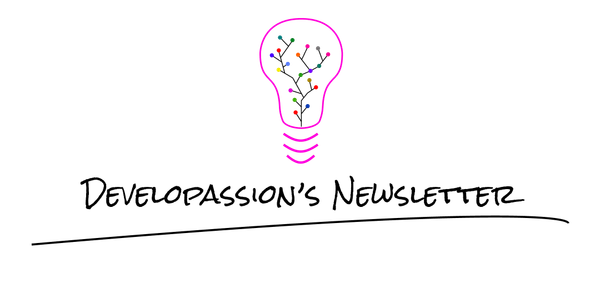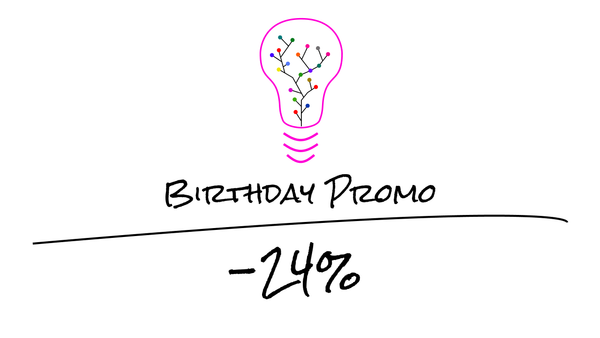The Crucial Role of Setting and Pursuing Goals
Clarity is not only about values, but also about knowing what your goals are. In this article, I want to explore the reasons why setting and pursuing goals is essential for personal and professional success.

Clarity is not only about values, but also about knowing what your goals are. In this article, I want to explore the reasons why setting and pursuing goals is essential for personal and professional success.
Note: This article is part of the Knowledge Worker Kit.
Introduction
Goals are multi-faceted. They range from personal to professional goals, places you want to visit, things you want to do, status you want to reach (for good or bad reasons), wealth you want to amass, success you’re after, relationships you want to be in, and more!
Goals are key because they set a target, an “end-game”. They form the basis of your vision. Your goals are there to guide you. They are needed to inform your decisions and actions, and shape who you want to become.
Your goals need to remain aligned with your Personal Value System. Otherwise, you risk forcing yourself down a path that doesn’t fulfill you and doesn’t make you happy. So goals should be chosen/defined wisely.
Top 10 reasons why goals are so important
- Goals bring clarity and help focus: Without them, we might wander aimlessly, unsure of where we're headed. When you set specific, measurable goals (i.e., SMART goals), you give yourself a target to aim for. This focus enables you to allocate your time, energy, and resources more efficiently.
- Goals are motivating: Goals are powerful motivators. They create a sense of purpose and excitement, driving you to take action. When you have a clear goal in mind, it becomes easier to overcome obstacles and stay committed to the task at hand. Not only that, but they instill intrinsic motivation. You will need less willpower to achieve your own goals than to pursue those of others
- Goals help with accountability: Goals hold you accountable. If you set a goal for yourself and don’t make any progress towards it, you’ll be disappointed in yourself. Goals are also inherently measurable. You can track your progress and see how far you've come. This measurement helps you stay accountable to yourself and your objectives. It also allows you to adjust your course if necessary, ensuring you're always moving in the right direction.
- Goals help you grow: Setting and pursuing goals leads to personal growth. As you work toward achieving your objectives, you learn new skills, gain experience, and develop a deeper understanding of yourself and your capabilities. Over time, this leads to improved confidence and self-esteem.
- Goals help with time management: Goals force you to better manage your time and prioritize tasks/activities that align with your objectives. This results in more effective days, less procrastination, and less wasted energy on unimportant or non-productive tasks. Anything that contributes to progress will seem more valuable.
- Goals make you more resilient: Having clearly defined goals helps you become more resilient in the face of setbacks and failures. When you encounter obstacles, you can view them as temporary challenges rather than insurmountable roadblocks. This mindset of resilience is crucial for long-term success.
- Goals simplify decision-making: Clearly defined goals make decision-making easier. They help you make choices that align with your long-term vision. When faced with a decision, you can ask yourself, "Does this move me closer to my objectives?" If the answer is yes, it's likely a good choice.
- Goals influence satisfaction and fulfillment: Achieving your goals brings a sense of satisfaction and fulfillment. Progress feels good. This sense of accomplishment can boost your happiness and well-being.
- Goals lead to clearer communication: Setting goals enhances communication. When you articulate your goals clearly, it's easier to communicate about those, convince people and collaborate more effectively. Clear goals lead to clear explanations.
- Goals help you learn valuable skills: Reaching your goals often requires acquiring new knowledge and skills along the way. Having a purpose creates an intrinsic motivation to overcome obstacles. This also applies to everything you need to learn and do. Your goals will act as forcing functions to learn what you need to.
It doesn’t matter where you came from. All that matters is where you are going — Brian Tracy
There are many more reasons (e.g., self-discipline, problem-solving, creativity, adaptation, relationships, etc.), but this should already give you a sense of why goals are so important.
Conclusion
Goals are really key to progress. They provide us with direction, motivation, and a roadmap. Whether your goals are big or small, personal or professional, they are the foundation upon which you can build a meaningful and fulfilling life. Embrace the power of setting and pursuing goals, and watch as your life transforms in remarkable ways.
About Sébastien
I'm Sébastien Dubois, and I'm on a mission to help knowledge workers escape information overload. After 20+ years in IT and seeing too many brilliant minds drowning in digital chaos, I've decided to help people build systems that actually work. Through the Knowii Community, my courses, products & services and my Website, I share practical and battle-tested systems. You can follow me on X 🐦 and on BlueSky 🦋.
I am an author, founder, and coach. I write books and articles about Knowledge Work, Personal Knowledge Management, Note-taking, Lifelong Learning, Personal Organization, and Zen Productivity. I also craft lovely digital products.
If you want to follow my work, then become a member and join our community.
Ready to get to the next level?
If you're tired of information overwhelm and ready to build a reliable knowledge system:
- 🎯 Join Knowii and get access to my complete knowledge transformation system
- 📚 Take the Course and Master Knowledge Management
- 🚀 Start with a Rock-solid System: the Obsidian Starter Kit
- 🦉 Get Personal Coaching: Work with me 1-on-1
- 🛒 Check out my other products and services. These will give you a rock-solid starting point for your note-taking and Knowledge Management efforts





